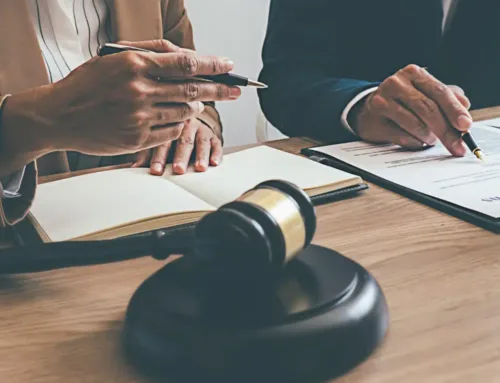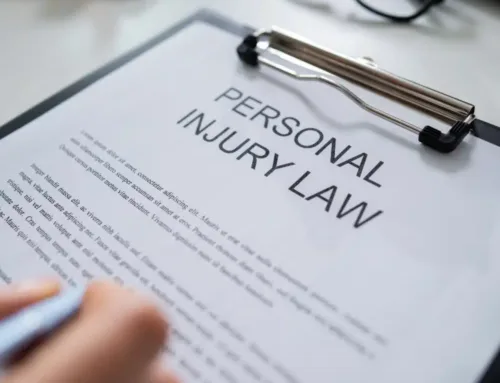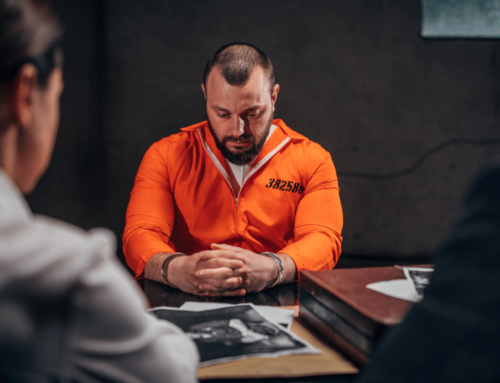In the intricate tapestry of a just society, criminal law stands as a crucial safeguard, defending the rights of individuals and maintaining the delicate balance between order and justice. This blog unravels the essential role played by criminal law, exploring its foundational principles, the protection it provides, and its overarching impact on the rights and liberties of those entangled in the complex web of the legal system.
Presumption of Innocence: A Pillar of Justice
At the heart of criminal law lies the cornerstone principle of the presumption of innocence. Dive into the significance of this fundamental right, understanding how it shapes legal proceedings and ensures a fair and impartial process for those accused of crimes.
Legal Representation: Upholding the Right to a Defense
Explore the critical role of legal representation in criminal law. Delve into the rights afforded to individuals accused of crimes, including the right to counsel, and understand how the presence of legal advocates is instrumental in safeguarding the accused against injustice.
Due Process: Safeguarding Fairness and Equality
Unpack the concept of due process, a bedrock of criminal law that guarantees fair treatment and procedural justice. Examine how due process protects individuals from arbitrary government actions, ensuring a systematic and unbiased legal course.
The Right to Remain Silent: Protecting Against Self-Incrimination
Analyze the importance of the right to remain silent in criminal law. Understand how this right shields individuals from self-incrimination, preserving their autonomy and reinforcing the principle that the burden of proof rests on the prosecution.
Balancing Act: The Intersection of Public Safety and Individual Rights
Navigate the delicate balance between maintaining public safety and upholding individual rights. Explore how criminal law seeks to strike a nuanced equilibrium, ensuring the protection of society without compromising the fundamental rights of the accused.
Legal Procedures: From Arrest to Trial
Follow the journey through legal procedures in criminal law, from the moment of arrest to the culmination of a trial. Gain insights into the steps involved in processing criminal cases and understand the significance of each stage in safeguarding the rights of the accused.
Fair Trials and Impartial Juries: Foundations of Justice
Examine the crucial elements of fair trials and impartial juries in the realm of criminal law. Understand how these components contribute to an unbiased legal process, ensuring that justice is served without prejudice or undue influence.
Plea Bargaining: Navigating Legal Options
Explore the concept of plea bargaining and its role in criminal law. Understand how this legal strategy can offer individuals accused of crimes an avenue to negotiate lesser charges, showcasing the flexibility inherent in the justice system.
Criminal Sentencing: Balancing Punishment and Rehabilitation
Delve into the intricacies of criminal sentencing, where the legal system seeks to balance punitive measures with rehabilitation. Explore the goals of sentencing, from deterrence and retribution to the potential for an offender’s reintegration into society.
Evolving Jurisprudence: Adapting to Societal Changes
Reflect on the dynamic nature of criminal law and its ability to evolve with societal changes. Examine how legal precedents, landmark decisions, and legislative reforms contribute to a justice system that adapts to the shifting needs and values of the community it serves.
Rights of the Accused: A Comprehensive Overview
Provide a comprehensive overview of the rights bestowed upon the accused in criminal law. Cover a range of rights, from the right to a speedy trial and the right to confront witnesses to protection against unreasonable searches and seizures.
Criminal Law and Social Justice: Addressing Systemic Issues
Explore the intersection of criminal law and social justice, addressing systemic issues such as racial disparities and socioeconomic factors that can influence legal outcomes. Discuss ongoing efforts to reform the criminal justice system for a more equitable and just society.
Restorative Justice: Healing Beyond Punishment
Introduce the concept of restorative justice and its potential to redefine the criminal justice paradigm. Explore how this approach focuses on healing, accountability, and repairing harm, presenting an alternative to traditional punitive measures.
The Role of Advocacy: Defenders of Rights in Criminal Law
Celebrate the essential role played by legal advocates and defenders in upholding the rights of individuals in the criminal justice system. Highlight the dedication and commitment of those who tirelessly work to ensure a fair and just legal process for every accused individual.
Building a Just Society: The Ongoing Quest of Criminal Law
Conclude by reflecting on the ongoing quest of criminal law to build a just society. Emphasize the collaborative efforts required from legal professionals, policymakers, and the community to continually refine and improve the criminal justice system. Whether you’re a legal enthusiast, a student of law, or someone seeking a deeper understanding of the mechanisms that safeguard justice, this blog aims to shed light on the indispensable role played by criminal law in defending the rights of all.
Contact Atty. Keith Anthony for expert criminal law defense, safeguarding your rights, and ensuring fair treatment in legal matters.




